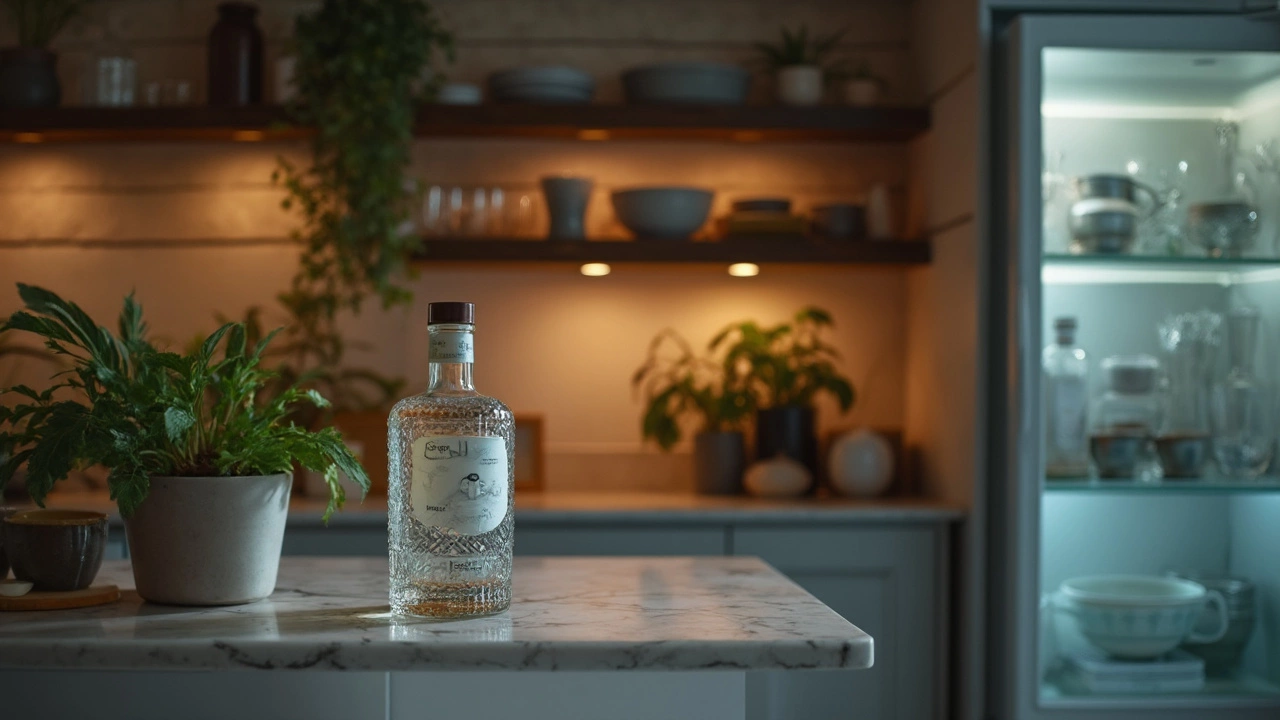Should You Refrigerate Gin? The Straight‑Forward Answer
Most people treat gin like any other spirit – store it at room temperature and pour when needed. But is that really the best move? In this guide we’ll look at what cold does to gin, when a fridge makes sense, and the easiest ways to keep your bottle tasting fresh.
Why Temperature Matters for Gin
Gin gets its character from botanicals – juniper, citrus, coriander, and a host of herbs. Those flavors are volatile, which means they can fade or change if the liquid sits too warm for too long. A higher temperature speeds up oxidation, and you might notice a duller nose or a softer bite after months on the shelf.
Cooling the bottle slows down that oxidation. It’s the same reason you keep wine in a cool cellar, only the effect is less dramatic for clear spirits. Still, a chill can preserve the bright top notes that make a gin cocktail pop.
Best Practices for Storing Gin
First, keep the bottle away from direct sunlight. Sunlight can break down the essential oils and turn the gin cloudy. A dark cabinet or pantry works fine. Second, make sure the cap is tightly sealed. Even a tiny amount of air can introduce off‑flavors over time.
If you drink gin daily, a refrigerator is a handy option. The cold will keep the botanicals lively and your cocktails crisp. Just remember that gin can thicken a bit when very cold – it’s normal and doesn’t harm the spirit.
For occasional drinkers, a cool, stable room temperature (around 65‑70°F / 18‑21°C) is ideal. No need for a fancy wine fridge; a simple pantry shelf does the trick. The key is consistency – avoid moving the bottle between hot and cold zones.
Another tip: If you’ve opened a bottle and notice it’s losing aroma after a few weeks, try storing it in the fridge for a week. The chill often revives the subtle botanical scents, making your next gin‑and‑tonic taste like it should.
Lastly, don’t forget the basics – keep the bottle upright to prevent the cork (if you have one) from drying out, and wipe the neck clean before sealing. A clean seal stops stray dust or moisture from getting in and ruining the flavor.
Bottom line: Refrigerate gin if you want to lock in bright flavors and you drink it often. Otherwise, store it in a dark, cool place, sealed tight, and you’ll still enjoy a great spirit for months. Now you can decide what works best for your bar setup and keep your gin tasting its best.
Wondering if you should refrigerate gin? Learn the science behind gin storage, storage mistakes to avoid, and pro tips for keeping your gin fresh and flavorful.
View Details

